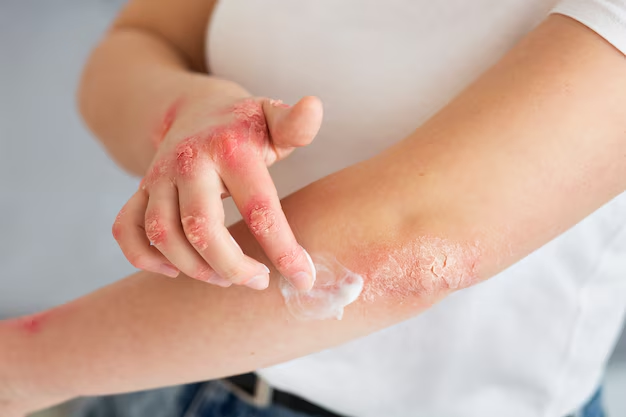Understanding Shingles and Its Contagious Period
Imagine waking up one day to find an unexpected, painful rash appearing on your body. This unsettling experience can be a sign of shingles, a condition often associated with significant discomfort. But beyond the pain and visual symptoms, many people have pressing questions: How long is shingles contagious, and what precautions should be taken? In this article, we'll dive into these critical questions to provide clarity and peace of mind for those navigating this condition.
What is Shingles?
Shingles, also known as herpes zoster, is a viral infection caused by the reactivation of the varicella-zoster virus, the same virus responsible for chickenpox. After a person recovers from chickenpox, the virus lies dormant in nerve tissue near the spinal cord and brain. For reasons not entirely understood, the virus can reactivate years later as shingles.
Recognizing Shingles Symptoms
The hallmark sign of shingles is a painful rash that typically appears on one side of the body or face, often in a stripe or belt-like pattern. Before the rash appears, individuals may experience:
- Pain or burning: Often the initial sign, this can be intense.
- Sensitivity to touch: The affected area might become tender.
- Itching: Some people may experience itching before the rash develops.
- Red patches: These precede blister formation.
Once the rash appears, it usually forms blisters filled with fluid. Over time, these blisters dry out and crust over.
When Is Shingles Contagious?
A common concern with shingles is its potential to spread. Shingles is less contagious than chickenpox, but it still poses a risk, particularly to those who haven’t had chickenpox or haven't been vaccinated against it.
Contagious Period
- Blister Phase: Shingles is contagious from the onset of the rash until the blisters have dried up and crusted over. This period can last approximately 7 to 10 days.
- Crust Phase: Once the blisters have fully crusted, the risk of transmission significantly decreases.
The virus can spread through direct contact with the fluid from the rash blisters. It is important to note that you cannot catch shingles from someone; if you contract the virus from a person with shingles, you'll develop chickenpox if you haven’t been vaccinated or had it before.
High-Risk Groups
Some individuals are more vulnerable to developing severe complications if exposed to the virus:
- Pregnant women who haven't had chickenpox.
- Newborns and infants whose mothers never had chickenpox or the chickenpox vaccine.
- Individuals with weakened immune systems due to conditions like HIV/AIDS or those undergoing cancer treatments.
Preventing the Spread of Shingles
While shingles itself cannot be completely prevented, there are ways to reduce the spread of the virus and decrease the risk to vulnerable individuals:
Practical Tips
- Cover the rash: Using gauze or adhesive bands can help minimize the risk of spreading the virus through contact.
- Practice good hygiene: Regularly wash your hands, especially if you touch the rash.
- Avoid contact: Refrain from spending time with high-risk individuals until your rash has completely crusted over.
Managing Shingles Symptoms
For those experiencing shingles, managing the symptoms becomes a top priority, as the condition can cause significant discomfort and complications if left unchecked.
Over-the-Counter Remedies
- Pain relief: Non-prescription pain medications can help manage pain effectively.
- Cooling lotions: Calamine lotion can soothe irritation and reduce itching.
Lifestyle Adjustments
- Rest and relaxation: Allowing your body to recover fully can speed up the healing process.
- Loose-fitting clothing: Wear clothes that don’t irritate the affected area to help manage pain and discomfort.
- Stay hydrated: Drinking plenty of fluids supports overall health and recovery.
Shingles Vaccination: A Proactive Measure
While you might not be able to entirely prevent shingles, vaccination can significantly reduce your risk. The shingles vaccine is recommended for adults over 50 and approved for those 18 and older who are at increased risk due to a weakened immune system.
Benefits of Vaccination
- Reduced risk: Those vaccinated have a lower chance of developing shingles and related complications.
- Lowered severity: If shingles occur post-vaccination, the intensity and duration of symptoms can be milder.
Common Myths and Misunderstandings About Shingles
Shingles is a subject fraught with misunderstandings. Addressing these myths helps people understand the condition better and manage it more effectively.
Myth 1: Shingles is a Sign of Old Age
While shingles is more common in older adults, anyone who's had chickenpox can potentially develop shingles, regardless of age.
Myth 2: Only Severe Rashes are Dangerous
The severity of visible symptoms does not necessarily indicate complication risk. Even mild rashes should be treated and managed seriously.
Insightful Closing
While the thought of shingles can be daunting, understanding the contagious period and preventive measures can empower you to handle the situation effectively. By staying informed and proactive, you can protect yourself and those around you from the potential spread. Whether through vaccination or simple preventive measures, taking steps to manage shingles wisely benefits not only your health but also the well-being of your community.
Quick Reference Summary
- Contagious Phase: 🤒 From onset until blisters crust over (~7-10 days).
- Precautions: 🛡️ Cover rash, wash hands, avoid vulnerable groups.
- Symptom Management: 💊 Over-the-counter pain relief, rest, and hydration.
- Vaccination: 💉 Recommended for those over 50 and high-risk individuals.
- Misconception Busting: 🚫 Shingles is not just an "older person's" condition.
By maintaining awareness of these key points, you can reduce shingles' impact both personally and within your broader social circle.

